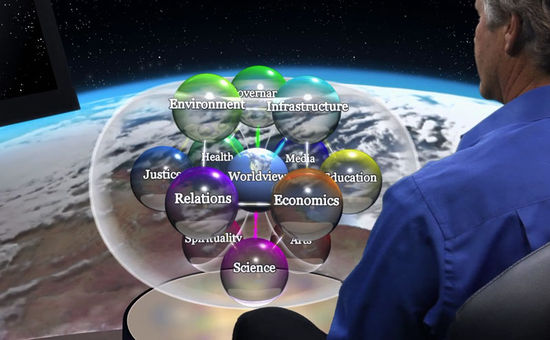Linguist George Lakoff describes the emerging shift from what he calls the “strict father” morality to a “nurturing” parent model.
The strict father model begins with a set of assumptions:
- The world is a dangerous place and it always will be, because there is evil out there in the world.
- The world is also difficult because it is competitive.
- There will always be winners and losers.
- There is an absolute right and an absolute wrong.
- Children are born bad, in the sense that they just want to do what feels good, not what is right. Therefore, they have to be made good.
What is needed in this kind of a world is a strong, strict father who can:
- Protect the family in the dangerous world,
- Support the family in the difficult world, and
- Teach his children right from wrong.
What is required of the child is obedience, because the strict father is a moral authority who knows right from wrong. It is further assumed that the only way to teach kids obedience – that is, right from wrong – is through punishment, painful punishment, when they do wrong. This included hitting them,…and some recommend sticks, belts, and wooden paddles on the bare bottom… Without such punishment, the world will go to hell. There will be no morality.
…Think for a minute about what this says about foreign policy. Suppose you are a real moral authority. As a moral authority, how do you deal with your children? Do you ask them what they should do or what you should do? No. You tell them. What the father says, the child does. No back talk. Communication is one-way. It is the same with the White house. That is, the president does not ask: the president tells. IF you are a moral authority you know what is right, you have power, and you use it. You would be immoral yourself if you abandoned your moral authority. Map this onto foreign policy and it says that you cannot give up sovereignty. The United States, being the best and the most powerful country in the world- a moral authority – knows the right thing to do. We should not be asking anybody else.
…The “rational actor” metaphor.. is the basis of most international relations theory, and in turn it assumes another metaphor: that every nation is a person…there are adult nations and child nations, where adulthood is industrialization. The child nations are called “developing” nations or “underdeveloped” states. Those are the backward ones. And what should we do? If you are a strict father, you tell the children how to develop, tell them what rules they should follow, and punish them when they do wrong. That is, you operate using, say, the policies of the International Monetary Fund.
The strict father worldview is so named because according to its own beliefs, the father is the head of the family.
The nurturant parent worldview is gender neutral.
Both parents are equally responsible for raising the children. The assumption is that children are born good and can be made better. The world can be a better place and our job is to work on that.
Nurturance…means two things: empathy and responsibility. If you have a child, you have to know what every cry means. You have to know when the child is hungry, when he needs a diaper change, when he is having nightmares. And you have a responsibility – you have to take care of this child. Since you cannot take care of someone else if you are not taking care of yourself, you have to take care of yourself enough to be able to take care of the child.
If you empathize with your child, you will provide protection,…you want your child to be fulfilled in life, to be a happy person. It is your moral responsibility to teach your child to be a happy, fulfilled person who wants others to be happy and fulfilled.
There are still other nurturant values: …freedom, opportunity and prosperity, fairness, open two-way communication, community building, service to the community, and cooperation in a community, trust, honesty." - George Lakoff (Don’t Think of an Elephant)
 Worldview is just a term meaning how you interpret reality, or what you believe to be trueAs far as I can tell, we each have one – and though it has been vastly influenced by the thoughts of those we read, watch or associate with, we each actually have a unique perspective on what is going on.
Worldview is just a term meaning how you interpret reality, or what you believe to be trueAs far as I can tell, we each have one – and though it has been vastly influenced by the thoughts of those we read, watch or associate with, we each actually have a unique perspective on what is going on.


 "In our whole-systems thinking tool, the Sector Navigator, we have “Worldview” at the center because we each experience every aspect of our lives through the lens of our set of beliefs – our Worldview"Foster Gamble
"In our whole-systems thinking tool, the Sector Navigator, we have “Worldview” at the center because we each experience every aspect of our lives through the lens of our set of beliefs – our Worldview"Foster Gamble Burning a finger on a hot stove informs our future behavior.
Burning a finger on a hot stove informs our future behavior. We are careening into a world of a few haves and billions of suffering have-nots.The Global Domination Agenda section of THRIVE and this site make the case that this is not an accident but an intentional plan. It’s hard to imagine the worldview of individuals who would actually spend their days planning the suffering or elimination of others, but it is critical to consider this if we want to protect one another, as well as our planetary home, and to turn the direction of humanity toward thriving.
We are careening into a world of a few haves and billions of suffering have-nots.The Global Domination Agenda section of THRIVE and this site make the case that this is not an accident but an intentional plan. It’s hard to imagine the worldview of individuals who would actually spend their days planning the suffering or elimination of others, but it is critical to consider this if we want to protect one another, as well as our planetary home, and to turn the direction of humanity toward thriving. I suggest you create a personal profile of your belief system with a list of questions something like this:
I suggest you create a personal profile of your belief system with a list of questions something like this: "My observation leads me to believe that human beings have an innate cost / benefit assessment tool operating all the time. Only when there is a sufficient combination of compelling evidence, emotional completion, and an adequate sense of future security do we let ourselves actually change our minds. And these have to outweigh the perceived cost of changing “who we thought we were.
"My observation leads me to believe that human beings have an innate cost / benefit assessment tool operating all the time. Only when there is a sufficient combination of compelling evidence, emotional completion, and an adequate sense of future security do we let ourselves actually change our minds. And these have to outweigh the perceived cost of changing “who we thought we were.










